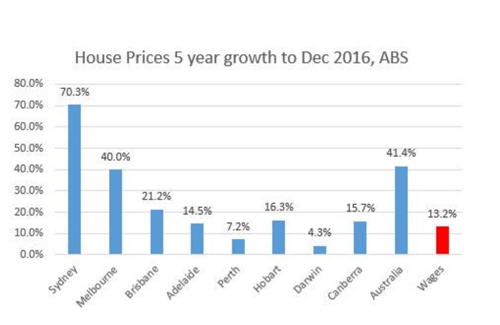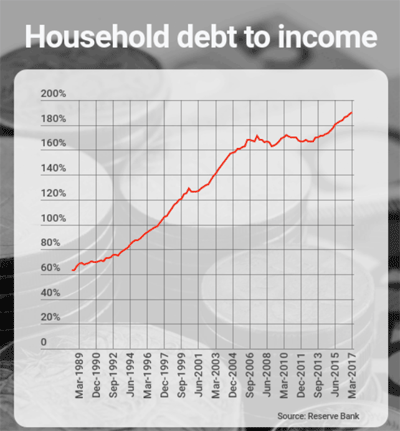
Under strain – can housing prices and power prices derail the Australian economy?
Australia – Part one: This article will cover housing and the reactions of state and federal policy makers to the housing crisis.
Under strain – can housing prices and power prices derail the Australian economy?
With Australia about to overtake Qatar as the world’s largest exporter of gas, you would expect energy in Australia to be both inexpensive and in abundant supply. Curiously enough, neither of those two attributes could be attributed to the East Coast of Australia with a confluence of events leading to sky rocketing power prices, gas shortages and the prediction of widespread power disruptions across Queensland, New South Wales and Victoria this summer. As Ecovis’ team of experts see it, this, in combination with record housing unaffordability, indicates that there are now significant issues facing the Australian economy. So how did it come to this and what are state governments doing about it?
 Within the last year alone, foreign buyers have been forced to divest properties in Australia worth a total of over A$107 million.
Within the last year alone, foreign buyers have been forced to divest properties in Australia worth a total of over A$107 million.
Housing
A range of tools has been deployed by state governments to try to reduce foreign investor demand for residential housing. But before examination of these, the following graphs illustrate the current issues for Australians looking to buy a home.
The first graph is from Ben Phillips, a professor at the Australian National University, who uses Australian Bureau of Statistics (ABS) data to illustrate housing price growth in the major metropolitan areas of Australia.

As the graph illustrates, housing prices in all of Australia have increased by 41.4% over the last 5 years, with Sydney house prices increasing by 70.3% in the same period. The key problem is that wages growth at the same time has only been 13.2%, leading to a large increase in household debt. This issue is illustrated by the next graph from the Australian Broadcasting Company (ABC) which highlights the growth in the household income to debt ratio.

The large increase in household gearing, coupled with increased cost of living pressures from items such as power prices, are having a dampening effect on the performance of the Australian economy. Reserve Bank data also show that Australian household savings are also trending downwards, as more people dip into savings to pay mortgages and meet increased costs of living.
State government reactions
The New South Wales’s (NSW) government response, which is indicative of what the approach of other states has been, is to impose:
- surcharge purchaser duty – NSW has imposed an 8% surcharge purchaser duty which is payable by foreign persons on top of the normal stamp duty on the purchase of residential real estate.
- land tax surcharge – NSW has imposed a .75% surcharge on residential land owned by a foreign person.
It is important to note that, in NSW at least, there are specific carve outs for New Zealand citizens who hold a Special Category Visa and meet the various exemption requirements. However the imposition of an 8% surcharge has significantly increased the cost of purchasing a property if you are a foreign resident or temporary resident of Australia.
Federal Government tax changes
The Federal Government has responded to the housing crisis by changing the capital gains tax (CGT) rules in three specific ways which affect temporary and foreign residents:
- For all transactions entered into after 8 May 2012, the 50% CGT general discount was removed.
- The introduction of a foreign resident capital gains withholding regime whereby the purchaser is required to withhold 12.5% from the purchase price.
- A proposal to remove the CGT main residence exemption for foreign residents who would otherwise have had a residence in Australia that may have qualified for this exemption.
This last change is currently in exposure draft form and has not yet been introduced into Parliament. The effect of this proposed change is, however, wide ranging and could even affect Australian citizens who at the time of selling a dwelling happen not to be residents for tax purposes even though they may have used the residential property as their main residence prior to leaving Australia.
Here again, the changes to main residence exemption also contain a specific carve out for New Zealand citizens who hold a Special Category Visa and are tax residents of Australia.
Federal Government foreign investment rule enforcement
Australia’s foreign investment regime already made foreign buyers seek permission from the Foreign Investment Review Board (FIRB) prior to acquiring property. Failure to follow the rules could mean that the treasurer could force a foreign buyer who did not have the correct approvals in place to sell the property they had acquired. However the rules, up to 2015, were rarely enforced.
From 2015 to now there have been numerous divestment orders made by the treasurer, with the most recent being earlier this year when foreign buyers of 15 properties from countries including China, India, Iran, Malaysia, Germany and Britain were given divestment orders. Since May 2016, 61 properties worth $107 million Australian dollars have been forcibly divested, with further orders expected to be given.
However the housing issue may pale in comparison to the coming energy crisis …
To be continued:
Part Two will look in detail at how both the state and federal governments’ conflicting policies are leading to both surging power prices and an energy crisis on the East Coast of Australia.
Author:
Scott Hogan-Smith, CPA – Certified Public Accountant (AE)
ECOVIS Clark Jacobs, Sydney, Australia
scott.hogan-smith@ecovis.com.au
Contact us:
ECOVIS Clark Jacobs
Level 2, Piers 2 & 3, 13 Hickson RoadNSW 2000 Walsh Bay, Sydney
Phone: +61 2 9264 1111
www.ecovis.com/australia

